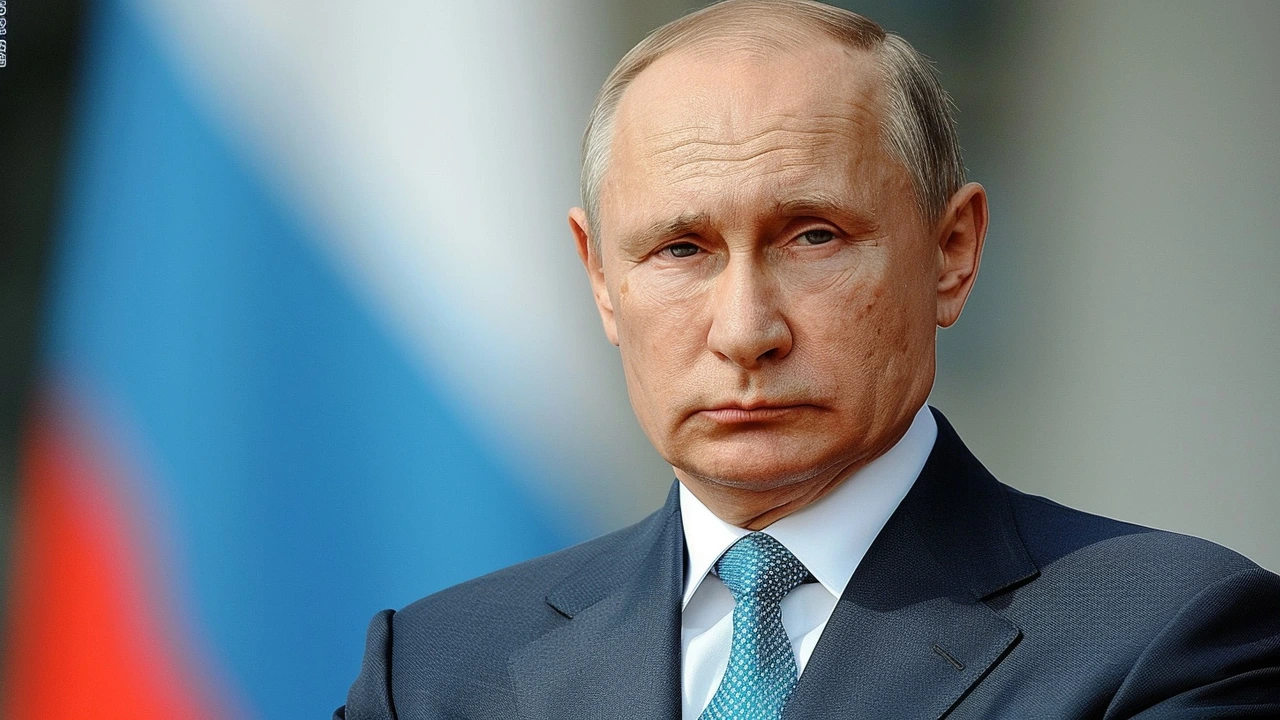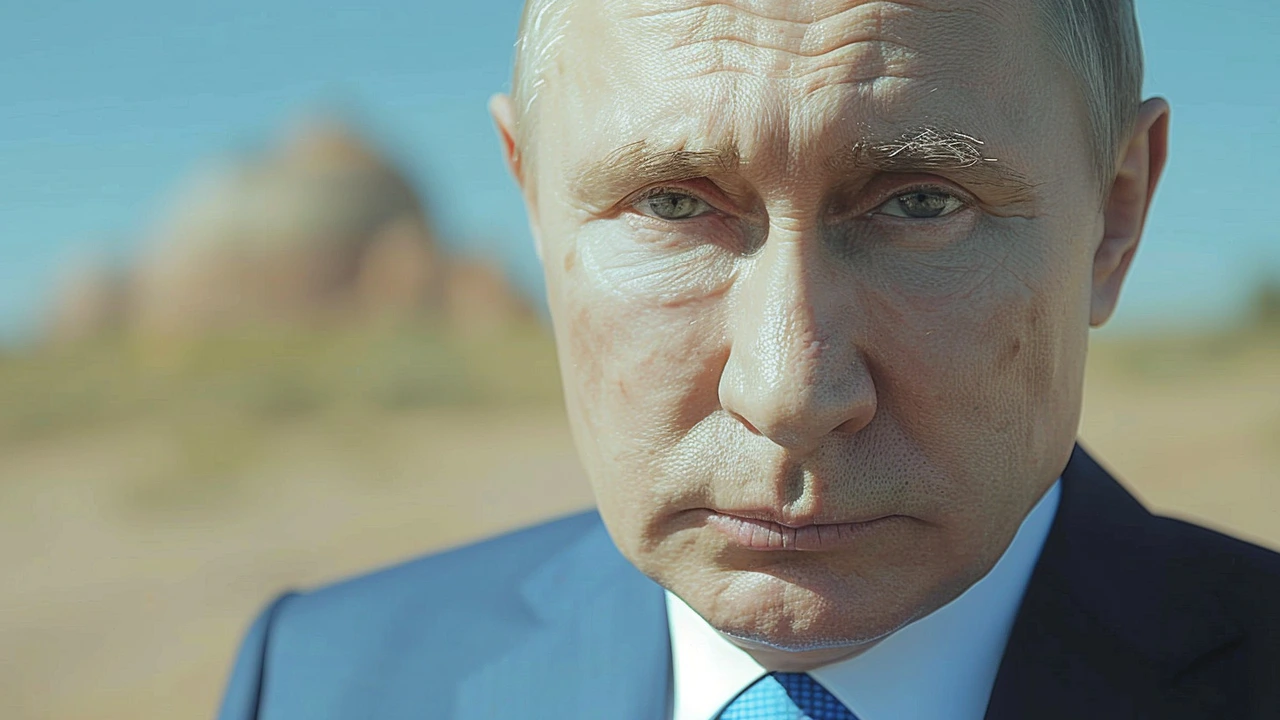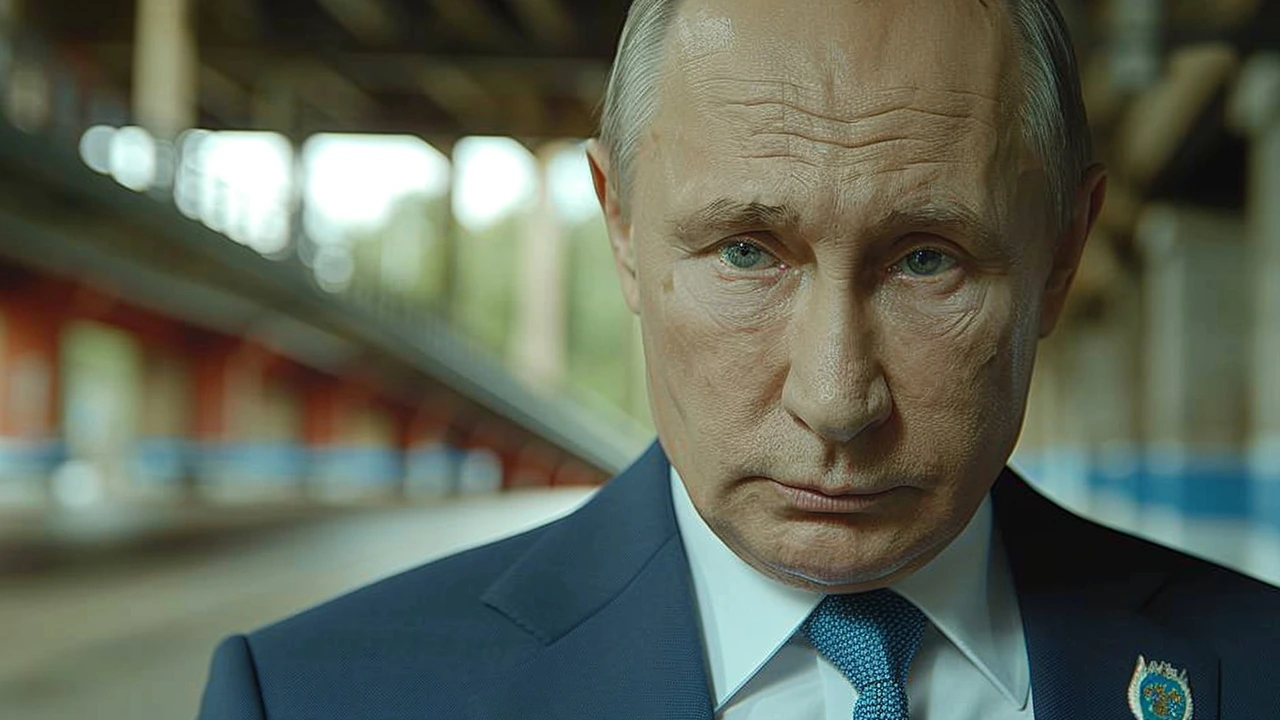Putin's Preconditions for Peace Talks with Ukraine
In a significant political move, Russian President Vladimir Putin has outlined the terms under which Russia would be willing to engage in peace talks with Ukraine. According to reports from the Russian state news outlet Tass, Putin's demands are clear-cut: the complete withdrawal of Ukrainian military forces from the territories of Donetsk, Luhansk, Zaporizhzhia, and Kherson. Furthermore, Putin emphasized that Moscow would ensure the 'unhindered and safe withdrawal' of Ukrainian troops if Kyiv agrees to these terms.
In his statement, Putin indicated that a 'real withdrawal of troops from these regions,' along with Ukraine officially renouncing its plans to join NATO, would prompt Russia to cease fire and begin negotiations immediately. These conditions put forth by Putin are aimed at securing a strategic advantage for Russia, creating a significant hurdle for Ukraine, which has been fervently seeking international support to resist Russian aggression.
Zelenskyy's Counter Proposal
On the other side of this geopolitical impasse stands Ukrainian President Volodymyr Zelenskyy, who has made it clear that Ukraine will not simply acquiesce to Russian demands. Zelenskyy has presented a 10-point plan that focuses on the restitution of Ukraine's 'territorial integrity' as per the U.N. Charter. This plan calls for the return of Crimea, a region that Russia illegally annexed in 2014, a move that has sparked international outrage and condemnation. The stark contrast between Putin's and Zelenskyy's proposals highlights the deeply entrenched positions on both sides and underlines the complexity of achieving peace.

Failed Peace Initiatives
Efforts to mediate peace between Russia and Ukraine have so far proven fruitless. One such effort is the 12-point plan proposed by China, which encompassed various aspects aimed at restoring peace. However, these initiatives have not succeeded in bringing the two nations to a mutual agreement. The ongoing conflict, which began with Russia’s invasion of Ukraine in February 2022, has continued to devastate the region and challenge global stability.
International Support for Ukraine
Amidst these diplomatic tensions, Ukraine continues to receive substantial support from its international allies. The Group of Seven (G7) nations has recently announced their commitment to provide $50 billion in loans to Kyiv, backed by frozen Russian central bank assets. This financial support aims to bolster Ukraine’s efforts to sustain its economy and fortify its defense capabilities in the face of the ongoing conflict.
Additionally, NATO is set to discuss further support for Ukraine during its upcoming summit. This coordinated effort by NATO countries reflects a strategic alignment with Ukraine’s aspirations and resilience against Russian aggression. Notably, the United States and Germany have already taken significant steps by lifting certain restrictions on military aid to Ukraine, signaling a robust commitment to support Kyiv in these turbulent times.

Potential Shift in Peace Talks Narrative
Putin's latest proposal could potentially alter the dynamics of the ongoing conflict and influence the discourse at the upcoming peace negotiations scheduled to take place in Switzerland. The summit, set for June 15-16, will see participation from at least 90 countries and organizations, although notably, Russia has not been invited. This international gathering will serve as a crucial platform for discussing the way forward and devising strategies to support Ukraine while addressing the broader implications of the conflict.
The evolving scenarios and conflicting interests pose substantial challenges to achieving a peaceful resolution. As the situation escalates, the global community closely watches the developments and continues to deliberate on actionable steps to mediate and bring stability to the region.
Broader Implications
The ramifications of the Russia-Ukraine conflict extend far beyond the immediate region. The geopolitical tension has raised concerns about global security, economic stability, and the precedence it sets for international law and sovereignty. The international responses, ranging from financial support and sanctions to diplomatic negotiations, underscore the intricate nature of global politics and the interdependent world order.
In conclusion, Putin’s articulated preconditions for peace talks underscore the complexities and high stakes involved in resolving the Russia-Ukraine conflict. While Ukraine garners substantial international support, the path to peace remains fraught with challenges, necessitating ongoing diplomatic efforts and strategic interventions by the global community.


Anita Drake
June 14, 2024 AT 19:44We need to keep in mind the human side of this conflict – families displaced, children who have lost schools, and entire communities living under constant threat. The preconditions Putin laid out disregard the cost of a forced withdrawal on the ground. While the G7’s financial package is a welcome sign of support, true peace will only come if Ukraine gets solid security guarantees and a clear plan for rebuilding. History shows that forced pull‑outs without a stable transition often lead to prolonged unrest. Any negotiation must be anchored in respect for international law and the lived experiences of the people affected. It’s essential that diplomatic talks include concrete steps for humanitarian aid and reconstruction.
Eduardo Lopez
June 15, 2024 AT 01:18It is downright abhorrent that a leader would set the bar so high that the only acceptable outcome is a total capitulation of a sovereign nation. The demand for Ukraine to abandon its NATO aspirations smacks of a Cold‑War mindset that refuses to accept the modern security architecture. Moreover, insisting on a complete withdrawal from four regions ignores the reality of ongoing combat and civilian safety. Such preconditions amount to blackmail, not genuine peacemaking. The international community must call out this coercive strategy for what it is – a power play disguised as diplomacy. Anyone who pretends this is a reasonable starting point is willfully blind to the bigger picture.
Nancy Perez de Lezama
June 15, 2024 AT 06:51While the article outlines the official statements, it fails to mention the underlying strategic calculations that drive these demands. The insistence on a full pull‑back from Donetsk, Luhansk, Zaporizhzhia, and Kherson is a clear attempt to create a buffer zone without addressing the core issue of sovereignty. It also sidesteps the legal implications of forcing a nation to renounce its NATO aspirations. A balanced assessment would consider the security concerns of both parties, not just the surface‑level demands. Ultimately, any lasting solution must incorporate a framework that guarantees mutual respect and territorial integrity.
Matt Heitz
June 15, 2024 AT 12:24From a geopolitical standpoint, the preconditions are a textbook case of strategic coercion aimed at reasserting regional hegemony. By demanding a complete withdrawal and a NATO repudiation, Russia is essentially trying to re‑establish a sphere of influence reminiscent of the pre‑1991 order. The language used in the statement is saturated with geopolitical jargon – “unhindered and safe withdrawal,” “strategic advantage,” “real withdrawal” – all of which mask the underlying power dynamics. It’s a classic maneuver: force the adversary into a position where their strategic options are severely limited, thereby increasing bargaining power. This approach, however, ignores the principle of sovereign equality and sets a dangerous precedent for future conflicts.
Susan Mark
June 15, 2024 AT 17:58Looking at the broader picture, the G7’s financial commitment is a pivotal step in bolstering Ukraine’s resilience. However, money alone won’t secure a lasting peace; we also need a clear diplomatic roadmap that addresses security guarantees, reconstruction, and the political settlement of contested territories. It helps to have experts on the ground who can advise on rebuilding critical infrastructure while ensuring that the aid reaches those who need it most. A coordinated effort between NATO, the EU, and Ukraine will be essential to keep the momentum going. Let’s not forget that sustainable peace relies on both economic stability and credible security arrangements.
Jason Jennings
June 15, 2024 AT 23:31This whole precondition drama is just another stunt.
Diego Vargas
June 16, 2024 AT 05:04Definately, the situation is more complex than a simple list of demands. Everybody keeps talking about "territorial integrity" but forgets that there are historical nuances that shape current borders. The Ukrainian side has legit concerns about sovereignty, but Russia also cites security interests that are not completely unfounded. A balanced analysis would weigh both sides' arguments, not just paint one as the villain. In addition, the G7 loans, while helpful, need to be structured in a way that doesn't trap Ukraine in debt forever. So yeah, think twice before jumping to conclusions.
Alex Lee
June 16, 2024 AT 10:38Putin's list is just a bad bargaining chip. It shows no real intention to end the war. The demands ignore the reality on the ground. Ukraine cannot just pull out without a plan. This is a simple fact.
Vida Yamini
June 16, 2024 AT 16:11The current diplomatic dance around the Ukraine conflict feels like a marathon that never gets to the finish line and it’s exhausting to watch. Each new statement from Moscow adds another layer of complexity that makes the already tangled situation even more difficult to untangle. While the G7 pours billions into loans, the reality on the ground is that civilians are still struggling to get basic supplies and rebuild homes that were reduced to rubble. It's not just about numbers on a spreadsheet; it's about people who have lost loved ones and now have to navigate a shattered economy. The demands for a total withdrawal from specific regions overlook the fact that many of those areas are still active battle zones where any sudden pullback could create massive security vacuums. Moreover, the insistence on Ukraine abandoning its NATO aspirations is a strategic move that aims to limit Ukraine’s future security options rather than promote genuine peace. Historically, forced concessions without addressing underlying security concerns have only led to protracted instability, and we risk repeating those mistakes if we don't take a more nuanced approach. It would be more constructive to focus on establishing credible safety guarantees, perhaps through a multinational monitoring force that could oversee any phased withdrawal. Such a framework could help build trust between the parties while providing the necessary protection for civilians. In addition, any financial assistance from the G7 should be paired with clear guidelines on reconstruction priorities, ensuring that aid reaches the most affected communities promptly. The upcoming summit in Switzerland presents a rare opportunity for a real diplomatic breakthrough, but that will only happen if all sides come to the table with genuine compromises rather than rigid preconditions. As we watch the developments unfold, it’s crucial to keep the human cost at the forefront of any policy discussion. Remember, the ultimate goal is not just to stop the fighting, but to lay the groundwork for a stable, sovereign Ukraine that can thrive in a peaceful Europe.
James Lawyer
June 16, 2024 AT 21:44The upcoming Swiss summit could serve as a critical juncture for de‑escalation, provided that both parties are willing to entertain reciprocal concessions. A formal framework that delineates phased troop reductions, coupled with internationally verified monitoring mechanisms, would address many of the security concerns raised by both sides. Moreover, integrating economic reconstruction plans into the diplomatic agenda could foster confidence and demonstrate tangible benefits of peace. It is essential that any agreement explicitly respects Ukraine’s territorial integrity while offering Russia verifiable security guarantees. Such a balanced approach might pave the way for durable stability in the region.
Abby Culbertson
June 17, 2024 AT 03:18All this talk just feels like a never‑ending cycle of promises and broken hopes.
Awolumate Muhammed Abayomi
June 17, 2024 AT 08:51Stay hopeful, friends! Even in the toughest moments, collective effort and determination can spark real change. Let’s keep supporting each other and push for solutions that bring lasting peace.
Josh Tate
June 17, 2024 AT 14:24It’s painful to see the human toll of this conflict, and I keep hoping for a path forward that puts people first. If we can all listen and share empathy, maybe we can find a compromise that eases the suffering.